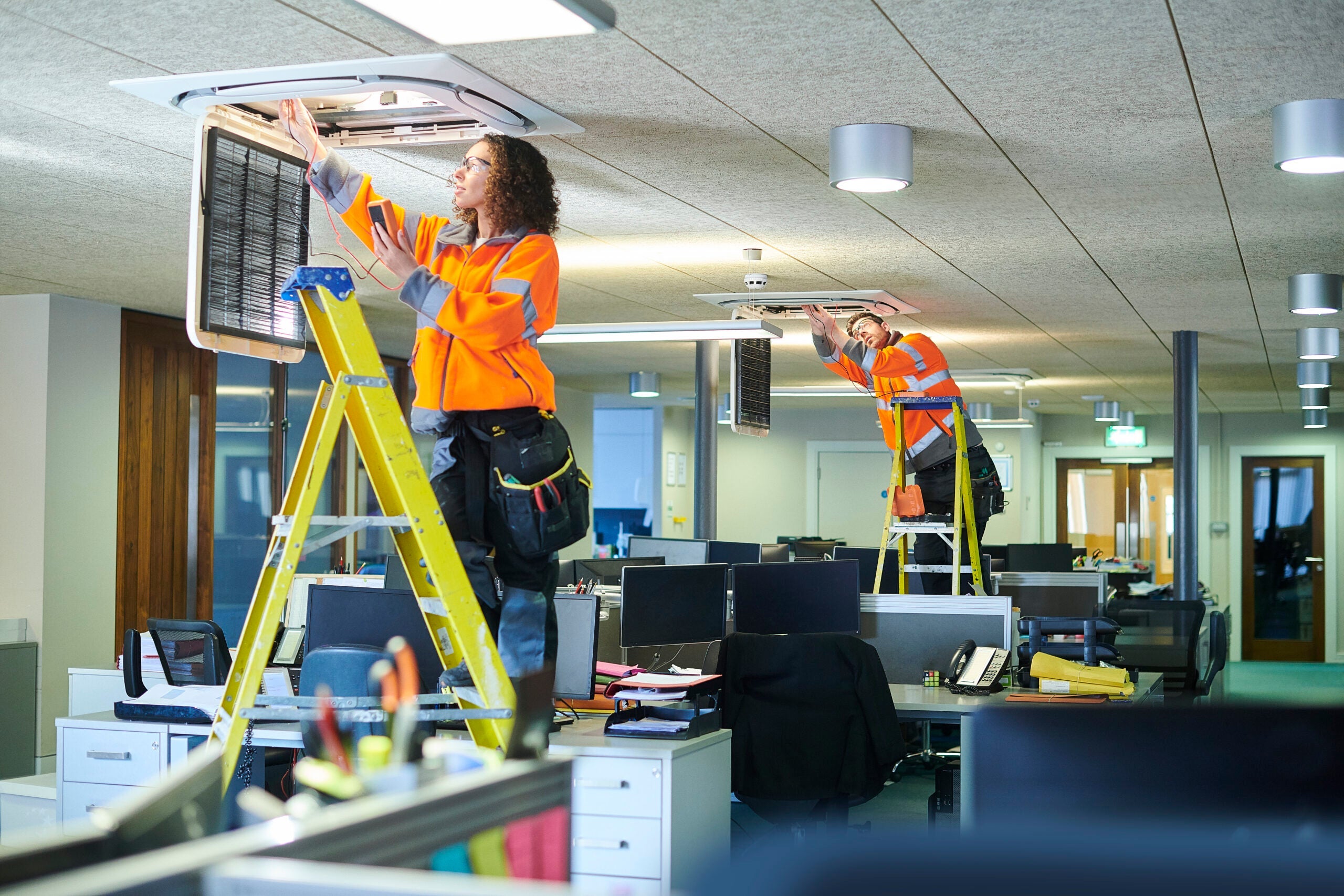The Importance of Continual Improvement in Maintaining Nuclear Air Cleaning Systems

In the nuclear industry, a philosophy of continual improvement is crucial to protecting the health and safety of workers, the public, and the environment.
“Although nuclear incidents are few and far between, they can have catastrophic consequences,” says Ron Bellamy, Ph.D., Co-Program Director of the In-Place Filter Testing Workshop, a program offered for several decades by Harvard T.H. Chan School of Public Health Executive and Continuing Education. “We need to be extra vigilant in the nuclear area and insist that we use these lessons learned and continual improvement to make a safe industry safer.”
While air cleaning systems are a factor in achieving this mission, Bellamy emphasizes that people in the field cannot rest on their laurels.
“And it doesn’t mean we should not improve the systems,” he stated.
The Complex History of Nuclear Incidents
Nuclear incidents, accidents, and natural disasters throughout history emphasize the importance of maintaining nuclear cleaning systems. While the Chernobyl disaster is an infamous example, the first real nuclear accident occurred at England’s Windscale facilities in 1957. The first use of HEPA filters, the accident created such a source term of radioactive material that there was a significant release of radioactive material. When incidents took place later, like at Three Mile Island in Pennsylvania, the responsibility of filter systems became increasingly clear.
“There was minimal release of radioactive material due to the filter systems,” says Bellamy. “It was exceedingly difficult to measure any radioactive material off-site.”
Natural disasters like Fukushima are also significant to nuclear history. Like Chernobyl, areas of Fukushima will never be accessible to the public again. In situations like these, the importance of understanding the changing face of nuclear cleaning systems is apparent.
Air Cleaning Systems in Public Health
When the unthinkable happens, the last line of defense against a nuclear incident is the air cleaning systems.
“There are numerous safety systems in the plant. But if there is a nuclear incident, there is the potential for the release of radioactive material into the environment,” says Bellamy.
While that last line of defense is essential, air cleaning systems must function successfully to ensure the basic operation of a nuclear power plant, where you’ll find individuals doing maintenance and testing, and operators who are manipulating the control rods. From grid management to the corporate office, air cleaning systems play an essential role in maintaining public health.
Interest in Small Modular Reactors
Traditionally, nuclear power facilities and commercial nuclear power plants are large facilities that take significant time and money to build. However, with the growing interest in small modular reactors, the complexity of the process is lessened.
“You can scale down the size of those plants by a factor of ten,” says Bellamy, who notes that small modular reactors’ components are built off-site, trucked in, and easily assembled. Small reactors are also easier to design and operate, require fewer safety factors, and don’t require long transmission lines to run. As a result, many companies have an interest.
“If there is a nuclear incident, it has less magnitude,” Bellamy continued. Those factors are a clear indication of why small reactors are gaining traction, particularly internationally. With several federal government contracts supporting them, countries like Canada are taking the lead.
“We need to be extra vigilant in the nuclear area and insist that we use these lessons learned and continual improvement to make a safe industry safer”
Who Needs to Further Their Knowledge?
The In-Place Filter Testing Workshop draws experience from a wide array of individuals.
“We get the individuals that will go back to these facilities, and use the equipment we have in the lab to do the testing in the field,” says Bellamy, who cites the following professionals as frequent participants:
- Engineers at the nuclear facilities and corporate offices
- Health physics individuals
- Operators
- Federal, state, and local regulators
- Outreach individuals, like emergency preparedness experts
- Others who want to have a full picture of how nuclear power facilities operate safely
“Every industry has to have a philosophy of continual learning [and] improvement,” says Bellamy. “It is more important in the nuclear industry than others.”
Harvard T.H. Chan School of Public Health offers the In-Place Filter Testing Workshop, which focuses on testing and certifying systems containing HEPA filtration and gas adsorption systems for nuclear and non-nuclear applications.


